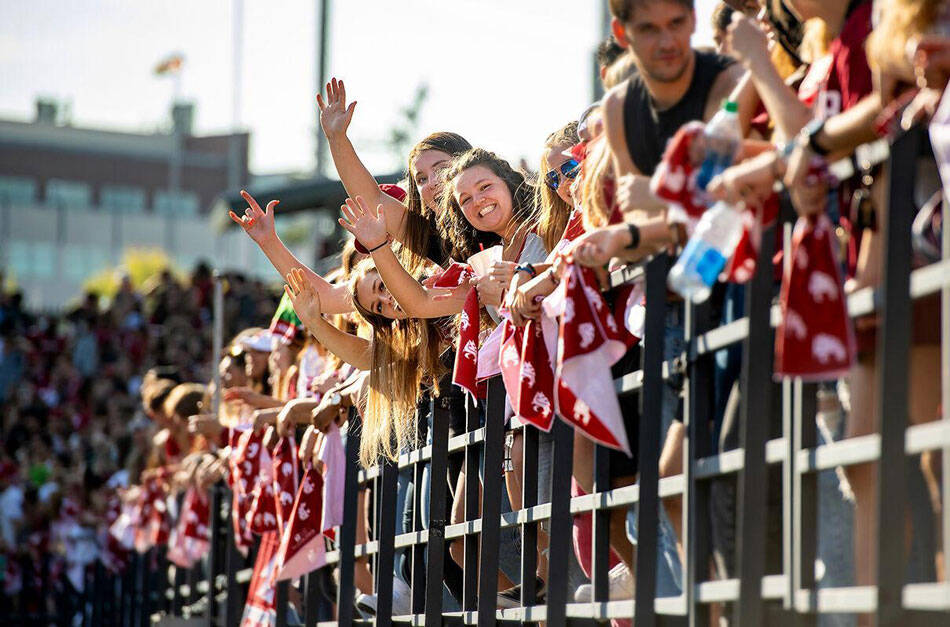By Randy Bracht | The Center Square
(The Center Square) – The Washington State Supreme Court on Friday declined to review a legal challenge to a lower court order that currently grants control of the Pac-12 Athletic Conference to Washington State University and Oregon State University.
The high court opted not to consider emergency motions sought by the University of Washington and nine other Pac-12 schools to retain their board membership and voting rights after announcing plans to leave the conference next year.
“We are pleased with the Washington Supreme Court’s decision today,” WSU President Kirk Schulz and OSU President Jayathi Murthy said in a joint statement. “We look forward to continuing our work of charting a path forward for the conference that is in the best interest of student-athletes and our wider university communities.”
In Friday’s order, Chief Justice Steven C. Gonzalez wrote that a majority of justices decided against granting review of the UW and Pac-12 emergency motions. The order also restored a preliminary injunction which allows only Schulz and Murthy to be recognized as voting members of the conference’s board of directors.
The injunction was issued on Nov. 14 by Whitman County Superior Court Judge Gary Libey at the request of WSU and OSU.
The board, currently chaired by Schulz, is comprised of the universities’ presidents or chancellors. All but two of the schools are public institutions supported in part by taxpayer dollars.
Libey’s injunction was put on hold on Nov. 28 by Supreme Court Commissioner Michael Johnston after the University of Washington and Pac-12 filed their emergency motions for discretionary review. At the time, Johnston said his temporary restraining order would maintain “the status quo until the discretionary review plays out.”
But the justices decided not to grant review and instead allow Libey’s injunction to remain in place.
WSU and OSU have a lawsuit pending against the Pac-12 and commissioner George Kliavkoff, contending the departing schools forfeited their right to control operations, address liabilities, and distribute assets worth millions of dollars. At dispute is a provision in their bylaws over the timing of a member school’s formal notice of withdrawal from the conference without invoking penalties.
A trial date has not been set.
In June 2022, the southern California schools of USC and UCLA publicly announced plans to leave after Aug. 1, 2024 – the key date in question – to join the Big Ten Conference. By the end of this summer, eight other conference schools – Arizona, Arizona State, Cal, Colorado, Oregon, Stanford, Utah and Washington – announced similar intentions to join the Big Ten, the Big 12 Conference, or the Atlantic Coast Conference next August.
Kliavkoff’s role as commissioner has been questioned in both the realignment process and television/media packages which failed to materialize this past summer. The Pac-12 had been trying to negotiate a new media package with several prospective bidders: Fox, ESPN, NBC, CBS, Amazon, and Apple. But a deal fell apart in early August when the 12 presidents and chancellors couldn’t reach an agreement because of differing opinions on revenue projections and what would be most lucrative to each school.
It remains uncertain how the legal challenges will ultimately be resolved – whether by trial, settlement, or some other means. The dispute also leaves in limbo factors affecting each school’s athletic programs, including finances, staffing and recruiting. Along with football, the Pac-12 Conference currently includes 23 other sports for 11 men’s and 13 women’s programs.
WSU and OSU have scheduled football games against each other and opponents in the Mountain West Conference in 2024. Schulz also announced last month that the Apple Cup football rivalry with the University of Washington will continue for at least the next five years.
“This longstanding tradition, stretching back to the initial meeting between WSU and UW in 1900, is a mainstay of Cougar athletics,” he said.
Schulz said the “brand recognition” of WSU athletics will “help us maintain our status as one of the premier athletic programs on the West Coast. This is due in no small measure to our exceptional roster of coaches and student-athletes and the support of our passionate fan base who embody the spirit of Washington State University.”







